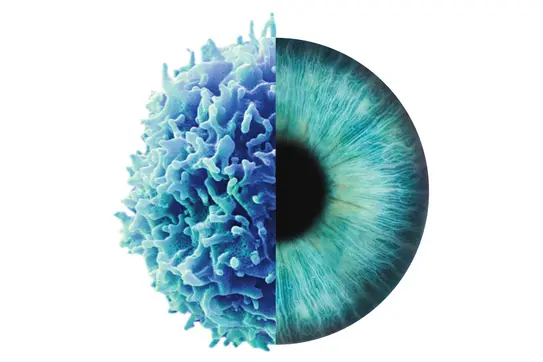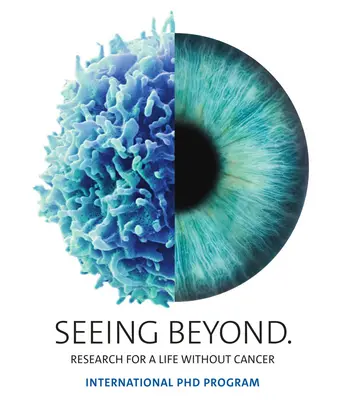DKFZ International PhD Program
The DKFZ International PhD Program lays the foundation for a career path as a world-class researcher for the Center’s over 500 PhD students.

The DKFZ International PhD Program is a fully funded, structured program within the DKFZ Cancer Research Academy, providing all DKFZ doctoral researchers (PhD students) with tailored mentoring and training in cancer research. The doctoral research projects are conducted at the German Cancer Research Center in Heidelberg or Dresden, or its partner sites across Germany within the German Cancer Consortium (DKTK), National Centers for Tumor Disease, the Helmholtz Institute for Translational Oncology and the DKFZ-Hector Cancer Institute at the University Medical Center Mannheim.
Reflecting the breadth of scientific topics represented within the Program, our doctoral researchers are enrolled in top universities across Germany, pursuing doctoral titles that best suit their scientific expertise. These range from Dr. rer. nat. (natural sciences) to Dr. sc. hum. and Dr. med. (human sciences and medicine) and Dr.-Ing. (engineering sciences).
The DKFZ International PhD Program has a lively network of active members, who organize regular scientific networking activities and social events. In collaboration with the DKFZ Career Service & Alumni Relations, the Program offers comprehensive guidance and career development resources, providing a strong foundation upon which our members take their next career step. Our alumni pursue diverse career paths in both academia and industry.
We warmly invite you to apply to join the DKFZ and our many distinguished scientists in cancer research!
The next application deadline is 21 April 2026 and the online system to submit your application will open at the end of March. Find out more by following the links below!
Curious about life as a PhD Student at the DKFZ?

Watch our video to hear firsthand from current PhD students and discover the unique opportunities the DKFZ International PhD Program offers!
At the DKFZ, Germany’s largest biomedical research institute, over 500 PhD students in 100+ research groups are dedicated to unravel the causes and mechanisms of cancer development and to identify groundbreaking tools for diagnosis, treatment, and prevention.
Sunidhi – Research Program Functional and Structural Genomics

“At first, moving to a new country and working on an unfamiliar challenge was both exciting and daunting, but being surrounded by brilliant minds in a welcoming, supportive and inclusive environment has made all the difference. DKFZ’s culture nurtures innovation, critical thinking, and interdisciplinary collaboration, transforming every challenge into an opportunity for growth.”
PhD Student in the Division of Genetics and 2024 PhD Student Representative
Contact DKFZ International PhD Program
The DKFZ International PhD Program is managed by Dr. Lindsay Murrells.
If you aren't able to find the information you're searching for on our website, please contact us by email!
